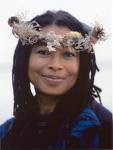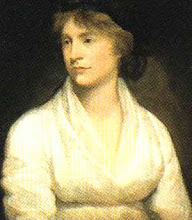08 November 2008
Role of Women (Middle Eastern Literature)
The role of women in Naguib Mahfouz’s The Journey of Ibn Fattouma is varied and alters according to the situation and their faith. As for his mother, Fattouma al-Azhari, is a protector and sounding board for Qindil. She tells Qindil that his birthday is “really her day…[His] birth brought both conformation of his [half-siblings] defeat and renewal of their fury” (2, 3). Qindil is aware of his isolation from his siblings and the circumstances that caused the separation.
The narrator speaks of Fattouma lovingly. She provides a good education for her son, takes an active part in his education, compliments him and tells him his faults. The narrator states, “My mother was happy at what I was gaining day by day and participated in shaping me by her love and her beauty…Never did she hesitate to express her admiration for my handsomeness, though telling me with the same frankness, ‘Your words often disturb my peace of mind…It’s as though you see only the ugly side of life’” (7).
From these lines, the audience senses that Fattouma was a good and caring mother, as well as an honest one. In essence, she is important in shaping Qindil’s early years. For the most part, she offers him a gentle wisdom.
Overall, the women play instrumental roles in the development and evolution of Qindil. He states, “I have been betrayed by religion, betrayed by my mother, betrayed by Halima. God’s curse be upon this adulterated land!” (13). From these lines, the audience perceives why Qindil begins a journey of this magnitude.
The disappointment with Halima Adli al-Tantawi’s is a catalyst, in and of itself, but it is ignited fully by his perception of his mother’s betrayal. With Halima, Qindil does not have an intimate or fully expressed relationship. It is only the idea of what it could have been. He is mostly struck by her beauty and form, not her personality.
Qindil’s first physical relationship occurs in Mashriq with a pagan woman, Arousa. She is nude and sexually free; she does not have sexual inhibitions. In sum, she distresses Qindil. Furthermore, he states, “She was…bronze and naked, but her face closely resembled Halima, my lost love” (24). At this point Qindil allows the reader to become aware that he is still clinging to the past.
Next, he remarks, “Arousa gave birth to her first child…[and acted] as though she had produced him on her own and I had nothing to do with it” (47). Arousa proves to be the source of his torment in many other cases as well.
However, in the torment, Qindil grows, evolves, and finds small truths in his journey. Through the pain comes knowledge and enlightenment. In Halba, Qindil meets and marries Samia, a physician. Through the relation, Qindil’s faith in Islam strengthens and matures.
Arousa ruins the relationship, but in the end Qindil realizes that “continuing to be attached to Arousa is a meaningless self-delusion” (98). Finally, it appears that when he no longer seeks female relationships that his enlightenment blossoms.
In summary, Qindil is greatly affected by the women in his life. Women are the catalysts that direct and redirect his actions, over and over again. They affect his journey from the beginning to the end. In a way, the women make the journey possible, by stimulating Qindil’s reactions. Thus, he achieves enlightenment through his encounters with women.
Subscribe to:
Post Comments (Atom)









No comments:
Post a Comment